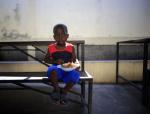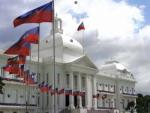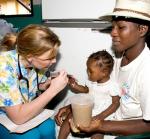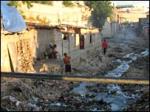 It is not easy to find a library in Haiti. The Fondation Connaissance & Liberté (FOKAL) wants to change that. FOKAL supports 35 community libraries throughout Haiti. FOKAL also supports arts and culture programming, a debate program, grassroots initiatives, a preschool program and even water projects. FOKAL staff will speak at the Library of Congress in Washington DC on June 10th. If you do not live in the Washington DC area, you can catch the live webcast. In the meantime,take a look at their website to learn more about this organiztion. Education is fundamental to solving Haiti’s economic, environmental, and health related challenges.
It is not easy to find a library in Haiti. The Fondation Connaissance & Liberté (FOKAL) wants to change that. FOKAL supports 35 community libraries throughout Haiti. FOKAL also supports arts and culture programming, a debate program, grassroots initiatives, a preschool program and even water projects. FOKAL staff will speak at the Library of Congress in Washington DC on June 10th. If you do not live in the Washington DC area, you can catch the live webcast. In the meantime,take a look at their website to learn more about this organiztion. Education is fundamental to solving Haiti’s economic, environmental, and health related challenges.
 In one of Bourik’s latest hoofs to the Northeast of Haiti he ran into an old friend, 8 year old Trou du Nord heavy, Beterson. While sitting outside the hitching post, observing the normal street commotion Bourik felt a looming presence.
In one of Bourik’s latest hoofs to the Northeast of Haiti he ran into an old friend, 8 year old Trou du Nord heavy, Beterson. While sitting outside the hitching post, observing the normal street commotion Bourik felt a looming presence.







